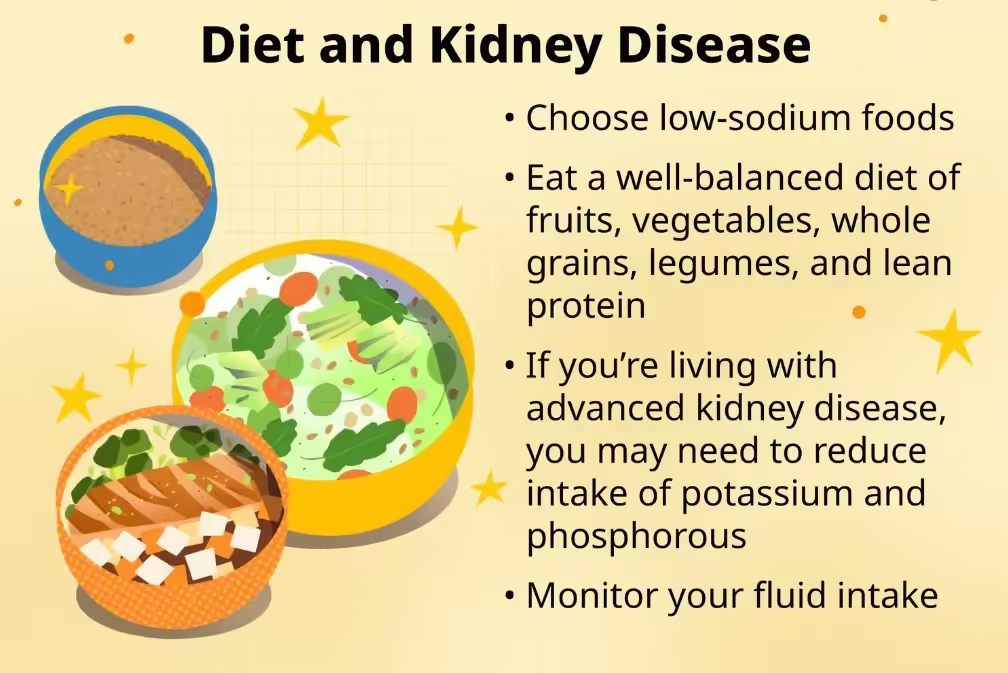Understanding Renal Disorders
Kidney failure, also known as renal failure, occurs when one or both of your kidneys no longer work properly. Kidney failure is sometimes brief and occurs suddenly (acute). Other times, it’s a chronic (long-term) ailment that gradually worsens. If the kidneys do not work properly, toxins accumulate in the body, eventually leading to renal failure.
So, it is essential for us to maintain it and follow a healthy lifestyle and nutrition for the proper functioning of the body.
Signs & Symptoms :
- Fatigue: Heathy kidneys make a hormone called erythropoietin, as the kidneys fail, they make less EPO. With fewer red blood cells to carry oxygen, your muscles and brain tire very quickly.
- Shortness of breath:
Being short of breath can be related to the kidneys in two ways. Firstly, extra fluid in the body can build up in the lungs. And secondly, anemia can leave your body oxygen-starved and short of breath.
- Nausea and vomiting:
A severe build-up of wastes in the blood (uremia) can also cause nausea and vomiting. Loss of appetite can lead to weight loss.
- Swelling in hands or feet:
Failing kidneys don’t remove extra fluid, which builds up in your body causing swelling in the legs, ankles, feet, and/or hands.

Role of nutrition for Kidney Health :
Proper nutrition is crucial for supporting kidney health and function. Here are some key dietary considerations for maintaining your kidneys :
- Stay Hydrated: Adequate hydration is essential for maintaining kidney function and preventing kidney disorders. Aim to drink plenty of water throughout the day, and limit consumption of sugary beverages and caffeinated drinks, which can strain the kidneys.
- Eat a Balanced Diet: Focus on eating a balanced diet that includes a variety of fruits, vegetables, whole grains, lean proteins, and healthy fats provide essential nutrients such as vitamins, minerals ,proteins and antioxidants that support kidney health and overall wellness.
- Limit Sodium Intake: Excess sodium can increase blood pressure and strain the kidneys. Hence you must Limit your intake of high-sodium foods such as processed foods, canned soups, and salty snacks, and opt for fresh foods whenever possible.
- Monitor Protein Intake: Consuming too much protein can put stress on the kidneys, especially for individuals with kidney disease. Its needed to Consult with a dietician to get the appropriate amount of protein for your individual needs.
- Manage Blood Sugar and Blood Pressure: High blood sugar and high blood pressure are leading causes of kidney disease. Hence monitoring of blood sugar and blood pressure levels is required to reduce the risk of kidney complications.
In conclusion, Nourishing your kidneys is critical for long-term health and well-being. A balanced diet, staying hydrated, and incorporating healthy lifestyle practices into your routine will help kidney function and lower your risk of renal disease.
Dt. Prerna Dhingra is a dietitian specializing in renal health with extensive experience in managing dietary needs for patients with kidney disorders. Consulting with specialists Dt. Prerna Dhingra can provide invaluable support and guidance for dietary and effective and sustainable lifestyle system.
“ Prioritise renal health today for a better tomorrow.”






Leave a comment